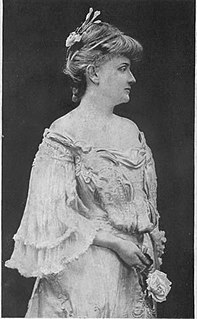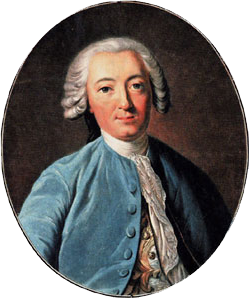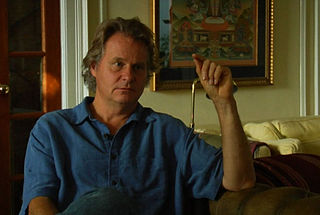A Quote by Walter Savage Landor
Be assured that, although men of eminent genius have been guilty of all other vices, none worthy of more than a secondary name has ever been a gamester. Either an excess of avarice or a deficiency of what, in physics, is called excitability, is the cause of it; neither of which can exist in the same bosom with genius, with patriotism, or with virtue.
Related Quotes
The Man of Genius may at the same time be, indeed is commonly, an Artist, but the two are not to be confounded. The Man of Genius,referred to mankind, is an originator, an inspired or demonic man, who produces a perfect work in obedience to laws yet unexplored. The artist is he who detects and applies the law from observation of the works of Genius, whether of man or nature. The Artisan is he who merely applies the rules which others have detected. There has been no man of pure Genius, as there has been none wholly destitute of Genius.
If we look to the answer as to why for so many years we achieved so much, prospered as no other people on earth, it was because here in this land we unleashed the energy and individual genius of man to a greater extent than has ever been done before. Freedom and the dignity of the individual have been more available and assured here than in any other place on earth. The price for this freedom at times has been high, but we have never been unwilling to pay that price.
Did any great genius ever enter the world in the wake of commonplace pre-natal conditions? Was a maker of history ever born amidst the pleasant harmonies of a satisfied domesticity? Of a mother who was less than remarkable, although she may have escaped being great? Did a woman with no wildness in her blood ever inform a brain with electric fire? The students of history know that while many mothers of great men have been virtuous, none have been commonplace, and few have been happy.
Neither can we admit that definition of genius that some would propose--"a power to accomplish all that we undertake;" for we might multiply examples to prove that this definition of genius contains more than the thing defined. Cicero failed in poetry, Pope in painting, Addison in oratory; yet it would be harsh to deny genius to these men.
Genius, without work, is certainly a dumb oracle, and it is unquestionably true that the men of the highest genius have invariably been found to be amongst the most plodding, hard-working, and intent men -- their chief characteristic apparently consisting simply in their power of laboring more intensely and effectively than others.
Either I'm a genius or I'm mad, which is it? "No," I said, "I can't be mad because nobody's put me away; therefore I'm a genius." Genius is a form of madness and we're all that way. But I used to be coy about it, like me guitar playing. But if there's such a thing as genius - I am one. And if there isn't, I don't care.
If then, as we say, good craftsmen look to the mean as they work, and if virtue, like nature, is more accurate and better than any form of art, it will follow that virtue has the quality of hitting the mean. I refer to moral virtue [not intellectual], for this is concerned with emotions and actions, in which one can have excess or deficiency or a due mean.
When a miser contents himself with giving nothing, and saving what he has got, and is in other respects guilty of no injustice, he is, perhaps, of all bad men the least injurious to society; the evil he does is properly nothing more than the omission of the good he might do. If, of all the vices, avarice is the most generally detested, it is the effect of an avidity common to all men; it is because men hate those from whom they can expect nothing. The greedy misers rail at sordid misers.
If we accept that we are all cut from the same genetic cloth, all cultures share the same genius. And whether that genius is placed into technological wizardry which has been our great achievement, or, by contrast, placed into the unraveling of complex threads of memory inherent in a myth is simply a matter of choice.
With ordinary men the moments which are united in a close continuity out of the original discrete multiplicity are very few, and the course of their lives resembles a little brook, whereas with the genius it is more like a mighty river into which all the little rivulets flow from afar; that is to say, the universal comprehension of genius vibrates to no experience in which all the individual moments have not been gathered up and stored.
It is characteristic of genius to be hopeful and aspiring. It is characteristic of genius to break up the artificial arrangements of conventionalism, and to view mankind in true perspective, in their gradations of inherent rather than of adventitious worth. Genius is therefore essentially democratic, and has always been so.
A man of genius is not a man who sees more than other men do. On the contrary, it is very often found that he is absentminded andobserves much less than other people.... Why is it that the public have such an exaggerated respect for him--after he is dead? The reason is that the man of genius understands the importance of the few things he sees.





































